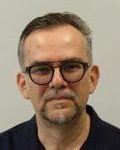History
Directors of the INII
The Institute of Research in Engineering, or INII, as it is known in the University, is one of the nine units that make up the Faculty of Engineering. Their activities are related, mainly, with the Vice-rector of Research.
The INII was born as an initiative of the Advisory Council of the Faculty of Engineering, to determine the need for the country to have a research unit able to embark on the formulation and solution of technical problems of great complexity and of a systematic and comprehensive in the areas of Engineering, Architecture, Computer science and Computer engineering.
Thus it was that in 1979, the Faculty presented to the University Council, a Draft Regulation for the Creation of the INII that was finally approved in article 30 of the session 2624 on September 24 of that same year.
In your level of operational and administrative account with an address, a subaddress and an Advisory Council; in addition, since 2004, has a Scientific Council. Both Councils dictate the guidelines of scientific and administrative performance; in addition, they have been shaped over the years by academic and academic of the Faculty, who, in their opportunity, they have directed their knowledge and their criteria for the benefit of the INII.
The themes in which he played the INII are great and varied; for example, it has worked on programs of environmental engineering, energy, housing, electronics, engineering, earthquake-resistant, agro-industry, forestry products, photonics and lasers, metrology, mechatronics, geomatics, standardization and quality. Similarly, it ventures into areas such as engineering maritime and inland waterway.
Your older unit is the Forest Products Laboratory (LPF), which was established since the year 1967. This was set as the first laboratory in woods of the country and came out of the need to have a Laboratory to explore the forest resources in a comprehensive way. Its infrastructure, located on the first floor of the Faculty of Engineering, was the seat of the first meetings for the creation of the INII and served in addition to house the administrative offices of the Institute and of the Center for audio-visual Aids, while both units got their own physical space. Currently, this laboratory is known with the name of a Unit of Forest Resources (ReForesta).
Also, the Earthquake Engineering Laboratory (LIS), created in 1989, is part of the Institute, this is the only laboratory in Costa Rica and Central America devoted exclusively to studies of Earthquake Engineering, to determine the effects of the quakes strong in the structures and the soil.
Among the objectives of the LIS are registering the constant seismic activity in the country through the use of accelerometers, instruments, especially designed for the measurement of earthquakes strong. In addition, it is designed to develop research in the area of Earthquake Engineering that contribute to the reduction of the destructive effects that bring earthquakes and strong, this is done through projects usually multidisciplinary, involving areas such as: Civil and Structural Engineering, Geology, Geotechnical engineering, Seismology, Urban Planning, Disaster Prevention and Civil protection and to disseminate the up to date knowledge in the field of engineering and seismic to people whose professional work is related to it.
Another lab that is attached to the INII is the Laboratory of Metrology, Standardization and Quality (LABCAL), founded in 1993. The LABCAL was conceived as a laboratory building to support the work of the laboratories of the University, in such aspects as the metrological control of measuring equipment, training in laboratory accreditation and implementation of document management systems, quality and the environment. In addition, it is intended to be a laboratory service to strengthen the development of metrology, standardization and quality in Costa Rica, in cooperation with other entities, providing training and reliable services to institutions and private and public companies; also assisting demands of industrial metrology, and legal.
Similarly, the Unit of Marine Engineering, Rivers and Estuaries (IMARES) is part of the Institute, this was born in 2004 as the Laboratory of Marine Engineering and River, with a great demand and need for research, teaching, and social action in the areas of coastal engineering and rivers. His main lines of research are focused on the determination of conditions of waves and flows extraordinary, flood zones, danger of erosion and sediment transport; in addition to the numerical propagation of the wave and waves of the tide and the design of protection works and coat, both river and costal.
The Institute has, in addition, with the Design Center and audio-visual Aids (CEDAA), a unit that was born in the year of 1978, when the School of Mechanical Engineering formed a Unit of Educational Technology. Subsequently, his administration was in charge of the INII, and these services were expanding to all the schools in the faculty, but, mainly, to the laboratories attached to the Institute.
The aim of the CEDAA is to assist with research, outreach, teaching and social action, providing loan services audio-visual equipment, design of graphic and audiovisual materials to be used in trade shows, seminars, continuing education courses with any other activity of dissemination and transmission of knowledge and research generated in the INII.
Similarly, the INII account with the Centre for Documentation and Information (CEDI). It was created in 1978 as a unit of the Dean of the Faculty of Engineering and in 1981 became part of the Institute of Research in Engineering.
The CEDI facilitates access to information and specific knowledge in the different areas of engineering, architecture, computer science, and computing, this with the purpose to contribute to the development of different schemes of study and research of the Faculty of Engineering and, in general, of the university community and national levels.

Johanna Mendez Arias
Directora actual

Victor Schmidt Diaz
(2018-2025)

Ofelia Sanou Alfaro
(2006-2010)

Flower Ma. Muñoz Umaña
(1994-2002)

Rosendo Pujol Mesalles
(1984-1988)


Georges Govaere Vicarioli
(2010-2018)

Ma. Lorraine White Red
(2002-2006)

Ismael Mazon Gonzalez
(1986-1994)

Roger Lorenzo
(1979-1983)
